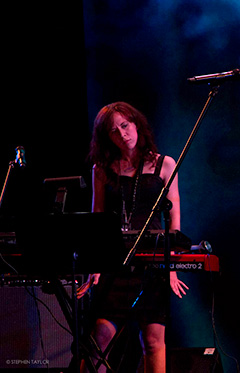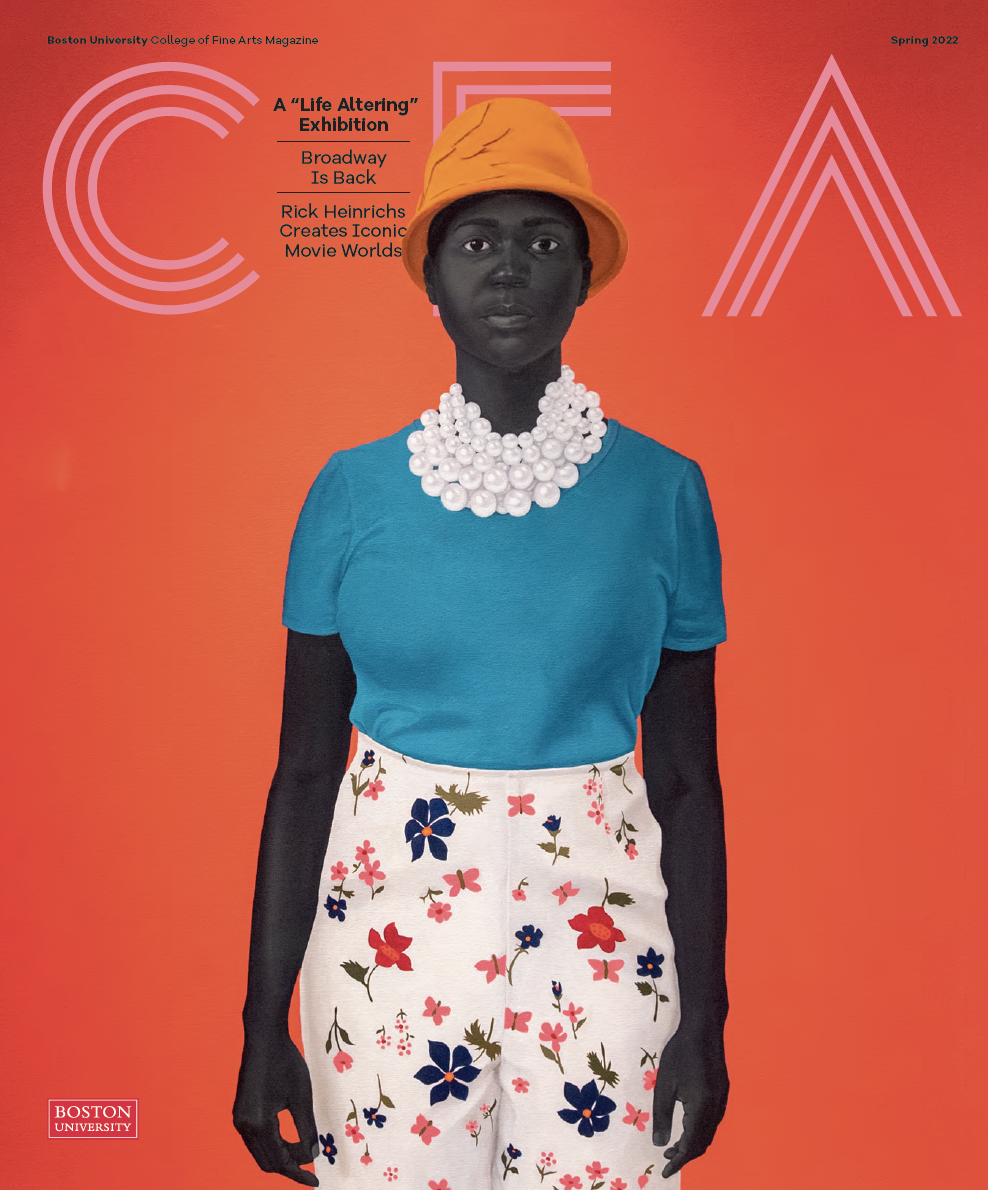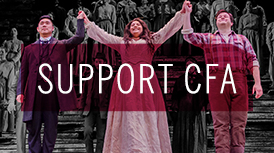Missy Mazzoli
A “postmillennial Mozart” composes alternative music for centuries-old instruments.
By Andrew Thurston | Photo by Stephen S. Taylor
In October 1904, Swiss explorer Isabelle Eberhardt was 27 years old and about to die. Her clay home would be no match for the flash flood surging through the small Algerian town of Aïn Séfra.
Born in 1877 to an aristocratic mother and anarchist father, Eberhardt was as unconventional as her family tree. She began her daring adventures at the age of 20 when she first traveled to Africa. Within seven years, she’d converted to Islam, lived as a man among an ancient Sufi order, warded off a saber attack (later sparing her assailant’s life), and married an Algerian soldier. She’d also poured all of her exploits—and her churning thoughts about them—onto reams of journal pages.
“When I sit down to write a piece, I rarely know what’s going to make it interesting in the end.”
“I am not afraid of death,” she wrote, “but would not want to die in some obscure or pointless way.” She would perish saving her husband from the flood; he, in turn, would save the pages of her journal.
Today, Eberhardt’s prose has been revived as opera lyrics. In Song from the Uproar: The Lives and Deaths of Isabelle Eberhardt, composer Missy Mazzoli (’02) rescues the pioneering Swiss from history. The opera has garnered five-star reviews and prompted Time Out New York magazine to label Mazzoli—a composer known for convention-busting explorations of her own—“Brooklyn’s postmillennial Mozart.”
New Music, Old Instruments
A friend of Mazzoli’s calls her compositions “New music for old instruments.” Mazzoli likes this phrase more than some of the other labels, from “alt-classical” to “art-rock meets chamber music,” used by enthusiastic reviewers in the New York Times and elsewhere when trying to give listeners a flavor of her original works.

Photo by Stephen S. Taylor
From her New York studio, Mazzoli (who attended the Boston University Tanglewood Institute in 1998) has composed film scores and solo, ensemble, and orchestral pieces. She also plays piano in a seven-piece ensemble that’s performed in classical venues and at rock festivals. Even opera emerges from her pen with an unfamiliar sound: behind the protagonist’s mezzo-soprano in Song from the Uproar are a flute, clarinet, electric guitar, piano, double bass, and electronics. “I’ve studied classical music my whole life and I feel very close to it,” says Mazzoli, “but I’m also 32 years old and it’s 2013. The classical era ended more than 150 years ago.”
This is an attitude she cemented early in life. Living with nonmusical parents—the house piano was rescued from a flea market and “never in tune”—meant she didn’t feel constrained by conventional boundaries. “Because they had no idea what I was doing, I thought, ‘Well, no one’s listening, I can do whatever I want.’” She allows herself the same freedom today.
“When I sit down to write a piece, I rarely know what’s going to make it interesting in the end. It’s a process of discovery; just letting really random, wild ideas come into my head without judgment, grasping onto one or two or three, and turning them into a piece.
Familiar and Unexpected
You can hear that experimental process in Song from the Uproar, recently released on CD. The opera opens at the moment of Eberhardt’s death as her life flashes before her; the only narrative is a “surreal, abstract, nonlinear” series of stories culled from the explorer’s journals.
“I felt like a lot of women I saw in opera were reduced to stereotypes or female archetypes,” says Mazzoli. “I saw this as an opportunity to write a big dramatic piece about a very complicated and interesting woman.”
The opera’s music is also complicated, featuring one of Mazzoli’s self-described trademarks: “repetition that’s not truly repetition,” a technique that requires audiences and musicians to really engage with a performance.
“It’s when something repeats, but doesn’t repeat exactly. There are subtle changes,” she explains. “I also try to combine the familiar and the unexpected. I’ll draw the listener in with something that is known to them, a chord, a rhythm, or a pattern that is very simple or familiar, but then I’ll change it up on them and I’ll insert some sort of surprise.”
Since debuting Song from the Uproar in spring 2012, Mazzoli has thrown herself into the operatic world. She’s currently composer-in-residence with the Opera Company of Philadelphia and recently completed a mini-opera, Salt, about Lot’s wife. She’s found opera suited to her desire to “create worlds that the audience could walk into.” Though she admits that it might sound “ridiculous,” Mazzoli also gets satisfaction from listening to the music she’s composing. “I make music that speaks to me—and my time.”

Photo by Kim Nowacki/Q2 Music










